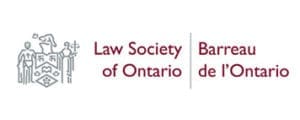Understanding the Presumption of Innocence in Canadian Criminal Law
The presumption of innocence means that anyone charged with a criminal offence is considered not guilty unless and until the Crown proves the case beyond a reasonable doubt. In simple terms, you don’t have to prove your innocence—the burden is entirely on the prosecution to prove guilt.
This principle is guaranteed under Section 11(d) of the Canadian Charter of Rights and Freedoms, which states that every person has the right “to be presumed innocent until proven guilty according to law in a fair and public hearing by an independent and impartial tribunal.”
Why This Matters If You’re Charged
If you’ve been arrested or charged with a criminal offence, the presumption of innocence ensures that:
- You don’t have to prove anything
- You have the right to remain silent
- You cannot be punished or treated as guilty unless the court is convinced by solid evidence
- The judge or jury must start with the assumption that you are innocent
This protection is especially important in cases where there is conflicting testimony or unclear evidence. Even if you choose not to testify, the court must still presume you’re innocent unless the Crown can prove otherwise.
How Courts Apply the Presumption
The courts apply the presumption of innocence by making the Crown meet a strict standard of proof. This includes:
- Presenting credible and reliable evidence
- Respecting your Charter rights throughout the process
- Allowing you access to legal counsel before making any decisions or statements
If there’s any reasonable doubt about your guilt, you must be found not guilty. This standard protects against wrongful convictions and ensures fairness in the justice system.
Common Misunderstandings
Many people mistakenly believe that being charged means they must prove they didn’t do it. In reality:
- The Crown must do the proving—not you
- Choosing not to testify cannot be held against you
- Police or prosecutors may try to pressure you into statements, but your silence is protected
That’s why it’s so important to speak with an experienced criminal defence lawyer as early as possible in the process.
Get the Legal Advice You Need
Facing criminal charges is stressful, but you don’t have to face it alone. The presumption of innocence is there to protect you—but only if your rights are properly defended.
Call Nick Charitsis today for a free, no-obligation conversation about your case. As a senior criminal defence lawyer with years of courtroom experience, I will listen to your story, explain your rights, and help you understand the best way forward. You are presumed innocent—let’s keep it that way.
Frequently Asked Questions
Q: What does “presumption of innocence” mean in Canadian law?
A: It means that anyone charged with a crime is considered innocent until the Crown proves they are guilty beyond a reasonable doubt in a fair trial.
Q: Do I have to prove I’m innocent if I’m charged with a crime?
A: No. In Canada, the burden of proof is on the Crown. You are not required to prove your innocence or explain yourself—the prosecution must prove your guilt.
Q: Can staying silent be used against me in court?
A: No. Choosing to remain silent is your legal right, and the court cannot treat silence as proof of guilt. You cannot be punished or judged negatively for using your right to remain silent.
Q: What happens if the judge or jury isn’t sure whether I’m guilty?
A: If there is any reasonable doubt about your guilt, the court must find you not guilty. Doubt means the Crown hasn’t met its burden of proof.
Q: Why is it important to speak with a lawyer early on?
A: Because even small mistakes or statements can be misunderstood and used against you. Speaking with an experienced lawyer like Nick Charitsis ensures your rights are protected and that you get clear, strategic legal advice from the start.





Comments are closed.